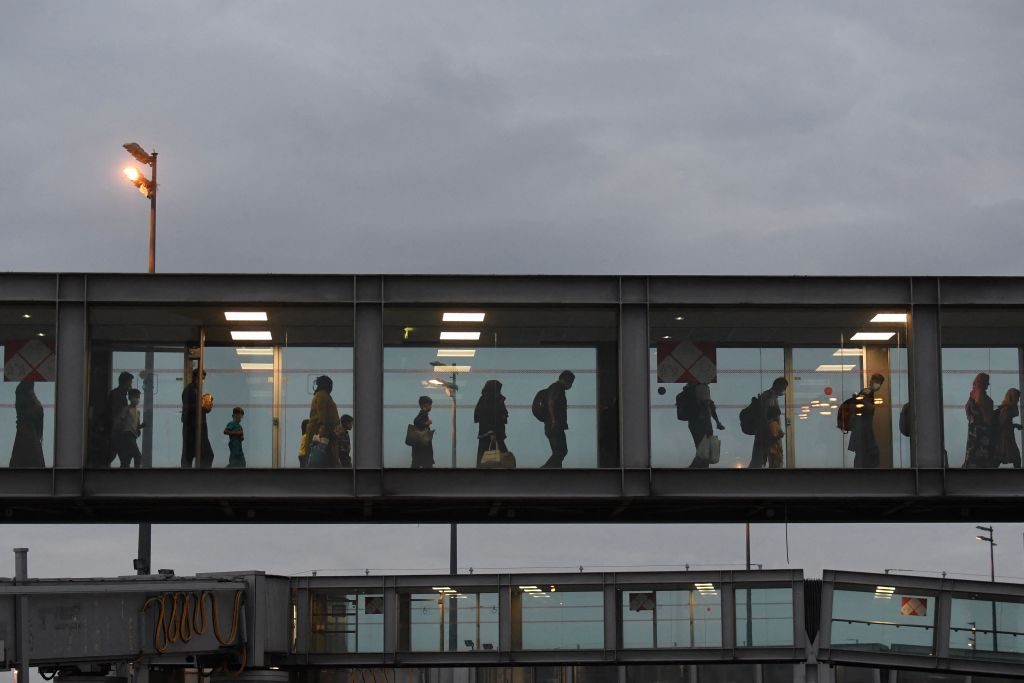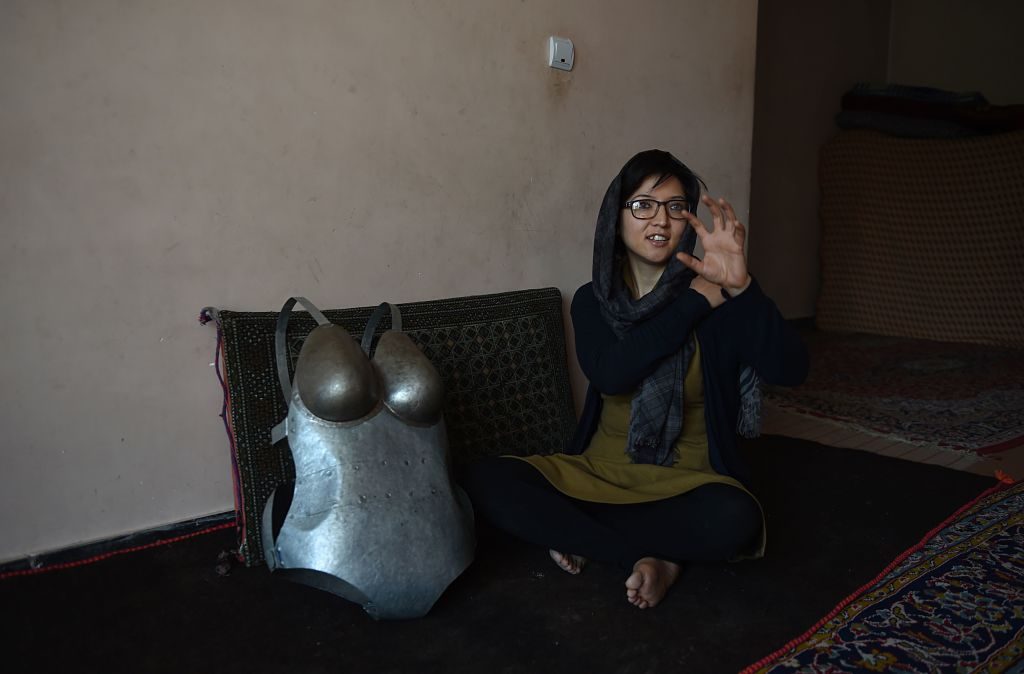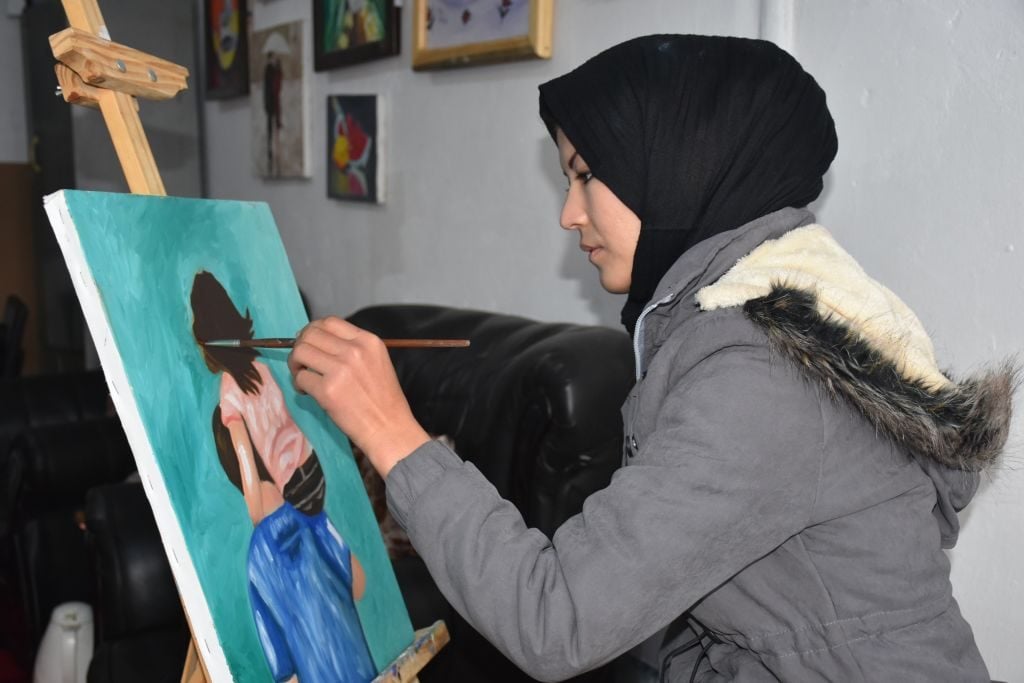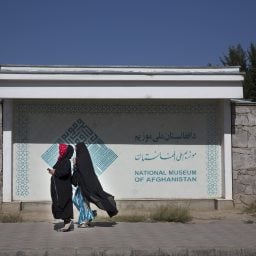For the last three weeks, the visual artist and performer Kubra Khademi has been working night and day with her producer Maria-Carmela Mini to get some of Afghanistan’s most vulnerable artists out of the country. “Neither of us slept last night,” she said via telephone on Tuesday, August 17, explaining that they had both been in constant contact via mobile apps with a group of more than 50 petrified cultural workers whose lives are imminently threatened, many of them female theatre makers.
As the Taliban rapidly gains power in Afghanistan following the departure of international military forces this summer, the country’s journalists, intellectuals, and artists are being targeted. According to a recent op-ed by novelist and film director Atiq Rahimi published in the French newspaper Le Figaro, “the Taliban is sowing terror by cruelly killing artists and journalists who, for the last 20 years, courageously denounced the horrors inflicted by this shadow army.”
Some of the feared violence has begun. On Twitter in late July, the U.S. head of affairs in Afghanistan, Ross Wilson, reported that comedian Nazar Mohammad, known as “Khasha,” was kidnapped and lynched by the Taliban. Reporting on his death, the Washington Post said that it sent a signal to local artists and activists as “a grim portent of a future Afghanistan at least partly controlled by a Taliban intolerant of art and humor.”

Passengers, who fled Afghanistan, disembark from a French Airforce Airbus A330 aircraft at Roissy Charles-de-Gaulle airport in Paris on August 18, 2021. Photo: Alain Jocard/AFP via Getty Images.
On August 5, PEN International, an organization that promotes literary freedom of expression, published a statement condemning the “brutal murder,” allegedly by the Taliban, of Abdullah Atefi, a poet and historian, adding that “in areas under Taliban control, freedom of expression has been severely undermined,” and that the Taliban is “banning independent media, silencing female voices, and ruthlessly targeting anyone engaged in expression deemed problematic by the militant group.”
Artist Khademi knows firsthand what it is like to flee Afghanistan under dire circumstances. She has been forced to live in exile from her home country since 2015 after receiving death threats for her feminist street performance in Kabul that denounced the public harassment of women in a severely patriarchal culture. Now, with the help and political savvy of producer Mini and others, she is working to expedite asylum procedures to bring those on their growing list of threatened artists to France, her adopted country.

Artist Kubra Khademi back in 2015. She went into hiding after wearing a suit of armour featuring large breasts and buttocks in a performance piece protesting sexual harassment. She is now based in France. AFP/ Shah Marai via Getty Images.
In a telephone interview, Mini said that she had been actively working to secure support and commitments from the ministries of culture and foreign affairs, as well as from presidential cabinet members. She has also mobilized, in collaboration with Joris Mathieu, director of the Théâtre Nouvelle Génération in Lyon and a board member of the Association des Centres Dramatiques Nationaux, a coalition of 30 prominent cultural institutions across France that are willing to welcome Afghan artists and help them rebuild their professional and personal lives.
Thanks, in part, to Mini’s efforts, Martine Aubry, a high-profile politician and the current mayor of Lille (where Mini’s production organization and festival of the same name, Latitudes Contemporaines, are based), launched a fundraising campaign “Accueil Afghans en Danger” last week.
Also raising funds is the Atelier des Artistes en Exil in Paris, which has offered workspace and support to hundreds of displaced artists since 2017, including Khademi. Judith Depaule, the organization’s co-founder and director, confirmed via telephone on Wednesday, August 18, that the money will be used to help cover the inflated costs of commercial flights from Kabul, where air traffic resumed on Tuesday after the Taliban’s shock seizure of the city last weekend.
The initiative is part of their support for a Marseille-based coalition of cultural organisations spearheaded by Guilda Chahverdi, curator of a 2020 exhibition called “Kharmohra: Art Under Fire in Afghanistan,” at the Mucem museum. Thanks to their efforts, three Afghan artists and their families landed at the city’s airport on Saturday, August 14.
Despite this first, small victory, like Chahverdi, Mini remains glued to her mobile phone. “We have to constantly reassure the artists who are currently still in Kabul that we’re doing all we can,” she said. “They are in a state of very, very high anxiety for their lives.”











